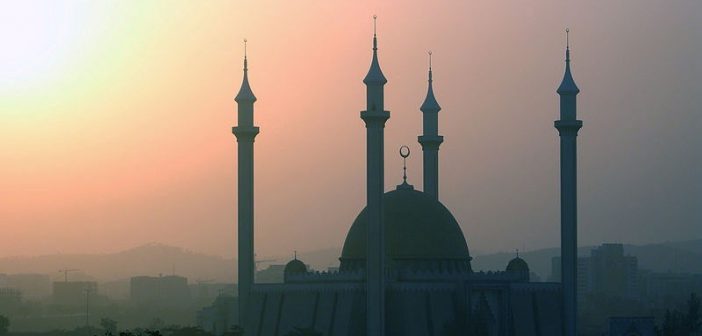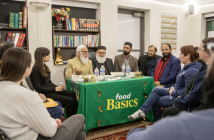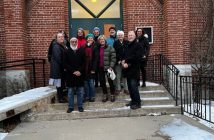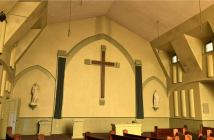Prof. Imam Soharwardy is the founder of Muslims Against Terrorism (MAT). He founded MAT in Calgary in January 1998. He is also the founder of Islamic Supreme Council of Canada (ISCC).
Imam Soharwardy is the founder of the first ever Dar-ul-Aloom in Calgary, Alberta where he teaches Islamic studies. Prof. Soharwardy is the Head Imam at the Al Madinah Calgary Islamic Centre. Imam Soharwardy is a strong advocate of Islamic Tasawuf (Sufism). and believes that the world will be a better place for everyone if we follow what the Prophet of Islam, Muhammad (Peace be upon him) has said, “ You will not have faith unless you like for others what you like for yourself.” He believes that spiritual weakness in humans causes all kinds of problems.
Mr. Soharwardy can be contacted at soharwardy@shaw.ca OR Phone(403)-831–6330.
Scott Douglas Jacobsen: For those in an international context who are in a younger generation, how can we bring about not only a greater interfaith dialogue, but also an interbelief dialogue from those who not only lack a formal religion to the entire suite of religions that the world offers?
Imam Syed Soharwardy: What is common among all of us is that we have a common humanity, interfaith dialogue is helpful because of the teachings of faith, regardless of the faith. Then you can make your arguments and suggestions, and discuss issues, based upon the interpretation of the scriptures.
From a humanist perspective, definitely, there are certain values and understandings that have been practiced and believed by all human beings of all faiths and no faith. For example, the killing of an innocent person is a very bad and very inhuman act.
It has been condemned by faith and non-faith groups. Life is sacred and holy. In all of our groups, whether faith-based or not, those values which are human values have been endorsed by faiths as well as by people of individual beliefs or groups of non-religious beliefs.
We can still have interfaith dialogue or dialogue with the people who have no belief, but being human beings and understanding the values of a human being. The precious value of human life, telling the truth, not killing children, women, or innocent people.
Violence is bad. Those are common values among human beings; no matter who the group of people are. We can still have an argument and a convincing argument based on common sense and on human behavior. Regardless of whether the belief is determined by religion or not.
Jacobsen: In terms of Canadian organizations, what ones would recommend for people to look into that are facilitating the interbelief dialogue?
Soharwardy: Community organizations, the most important thing is the community needs to be involved in the discussions. They should not be at a leadership level, or imam or priest level. It should be at the level of common people.
That is why the work is different than other faith groups. I work at the grassroots level. I am an imam along with pastors, rabbis, and other leaders of the community are involved, but also women, children, and others in the community are involved. We attend the synagogue. We go to the mosque.
We do this conversational exchange. Churches come to our mosque too. That’s why ours is different. They have a dialogue with everyone having a question and answer.
Ours include dialogue with the imam and priest level, but also with children and others, ad women, to break down the barriers. Especially for a new immigrant who comes to Canada, many women do not even speak English.
They come from underdeveloped countries. Children who are new in Canada. They have difficulty in communication too. That’s where the barriers are broken. We have food together and children are playing together. So, that’s what we do. That’s very, very helpful.
You can ask the faith groups. They can testify to the importance of the congregation visits to various places of worship.
Jacobsen: When it comes to older generations compared younger generations, do you think they have a greater ability to adapt to that interbelief dialogue? I see many elders putting their hope in the young to bridge that group.
Soharwardy: Absolutely, the older generations develop firm positions in their beliefs or on problems. But younger generations from what I have seen in all faith groups is that they are very adaptive and outgoing, and they don’t hesitate to express, honestly, their opinion.
Older generations sometimes are diplomatic and not as honest as they should be [Laughing]. But the younger generation, absolutely, they are better at expressing themselves and having dialogue and are outgoing and initiating discussion and most importantly, they are adaptive and flexible in listening as well as accepting other people’s point of view if they belong to another faith group.
Younger people if it makes sense they will accept it. Older generations may have strong positions, regardless, at times. I am optimistic with the younger generations, especially the younger Muslim generation. I think when they come to leadership roles that we will have a much better situation than today.
Jacobsen: Thank you for the opportunity and your time, Imam Soharwardy
Canadian Atheist Article: https://www.canadianatheist.com/2017/10/soharwardy/





